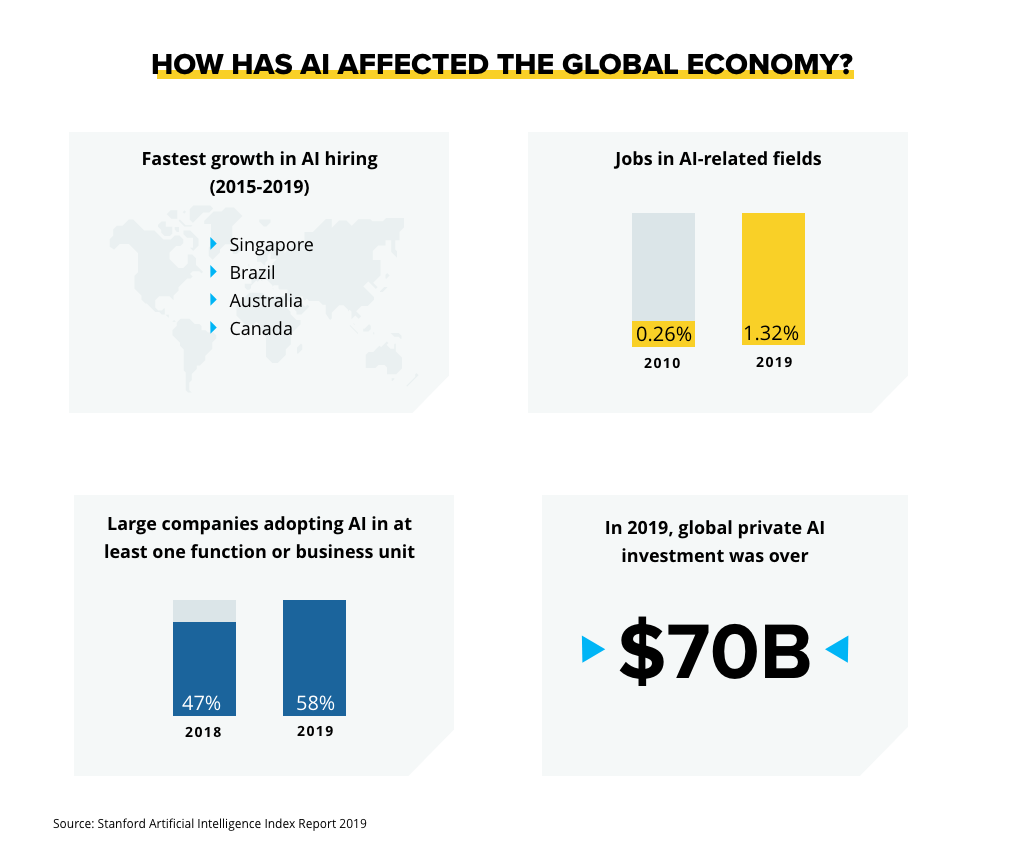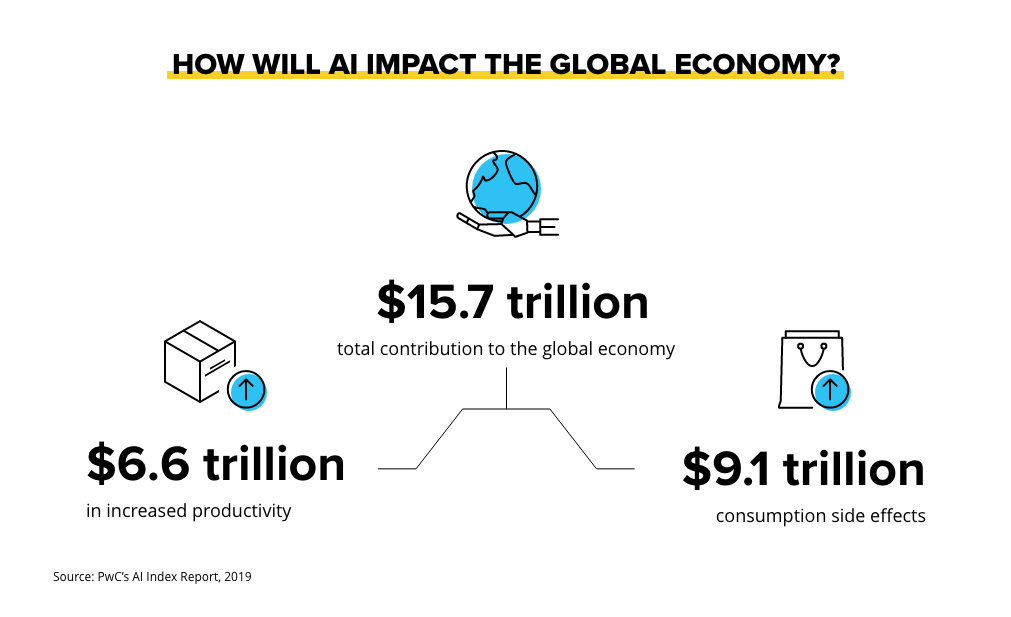Artificial Intelligence or AI has literally taken our world by storm. From the famous Tinman in The Wizard of Oz to Jarvis in the Marvel movies, people have always been fascinated by machines and their ability to make our lives easier.
Just like many other technological advancements, Artificial Intelligence was born because Alan Turing asked a simple question – can a machine imitate human intelligence? Today, that question has transformed into a 169.41 billion dollar industry. And folks, this is just the beginning!
The Impact Of Artificial Intelligence Is Everywhere
There’s virtually no major industry that digital transformation and modern AI hasn’t already affected, especially in the last decade. Thanks to a robust IoT connectivity and speedy computer processors, there has been a significant increase in the amount of data collected and analysed every single day. It’s safe to say that AI is truly, everywhere.
For instance, consider an extremely simple thing that you do – online shopping. Have you ever wondered how an e-commerce application is able to display “items that you may like” every time you open the app? Well, that’s Artificial Intelligence for you. AI monitors user behaviour on an e-commerce platform – things like items that you’ve viewed in the past, clothing pieces that you’ve bought, how much time you spent admiring that cool denim jacket, and stores all that information in a data record. So the next time you’re shown “items that you may like”, you’re probably going to spot that denim jacket in there!
E-commerce isn’t the only industry AI is revolutionising. Transport, manufacturing, healthcare, education, media, customer service – the possibilities are endless.

What Are The IT Giants Doing In Artificial Intelligence?
- Google: ai.google – a separate division dedicated to artificial intelligence has dedicated teams that are extensively researching on topics like quantum computing, machine perception, robotics, and human-computer interaction.
- Microsoft: Not new to the field of AI, Microsoft has been working on artificial intelligence for over 25 years now! You’ve probably heard of the virtual assistant Cortana and the chatbot Zo – both AI-powered.
- IBM: True to their expertise, IBM built the famous AI computer – Watson – A machine that won the famous US quiz show Jeopardy by outperforming its human counterparts! They also offer a plethora of AI-products and services on their website, for businesses across the globe.
And that’s just some of them! With companies spending nearly $20 billion collective dollars on AI products and services annually, big things in the field of Artificial Intelligence are bound to happen! Some of these developments may be significantly disruptive, and some may just be unexecuted theories. For better or for worse, there’s no downturn in sight.
Will AI Invent New Jobs And Empower Existing Ones?
Keeping diplomacy aside, yes, AI will certainly displace some jobs. However, this isn’t a new occurrence. For instance, a very small percentage of the population today goes to a travel agent to book their flight tickets, making their job pretty much redundant. Similarly, the title “mobile app developer” was invented not more than a decade or two ago. At the end of the day, all that matters is efficiency. And that’s what AI is here to do.
In fact, Yuval Noah Harari, in his book “21 Lessons For The 21st Century” talks about how AI will create new jobs that never existed before, just to maintain the Artificial Intelligence technology.
A Different Perspective?
Look at it this way – rather than replacing workers, what if AI can be used to help employees work better? For example, a customer service executive can help a caller better if he can get instant intelligence on what the caller needs. Similarly, a healthcare professional can better diagnose a patient if he has access to an AI-compiled database of people with similar symptoms from all across the world! Apart from helping existing businesses, AI also creates scope for new ones. A few examples include AI-based agriculture, digital-based medical care, and AI-based call monitoring.

What Industries Will AI Impact The Most?
1. Manufacturing
The manufacturing industry is leading the way in Artificial Intelligence technology. There are two primary reasons why:
(1) Studies show that unplanned downtime because of a failure in the production line machinery can cost a manufacturer roughly $260,000 an hour! By using AI and predictive analysis, a manufacturer can predict the next failure of a part, system, or machine. The result? He saves millions of dollars!
(2) Because of the short time-to-market deadlines and the complexity of newer products, it’s tough to maintain quality, comply with standard regulations, and deliver on time. By using AI, the percentage of faulty products and lower-quality outputs can be significantly reduced.
Read more about the benefits of artificial intelligence